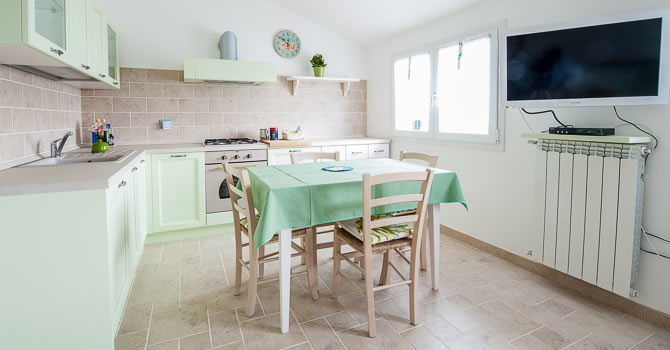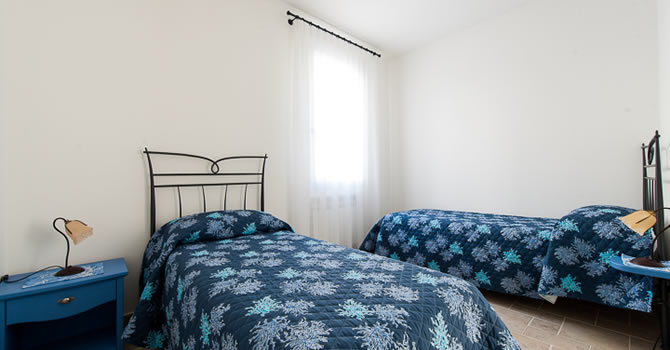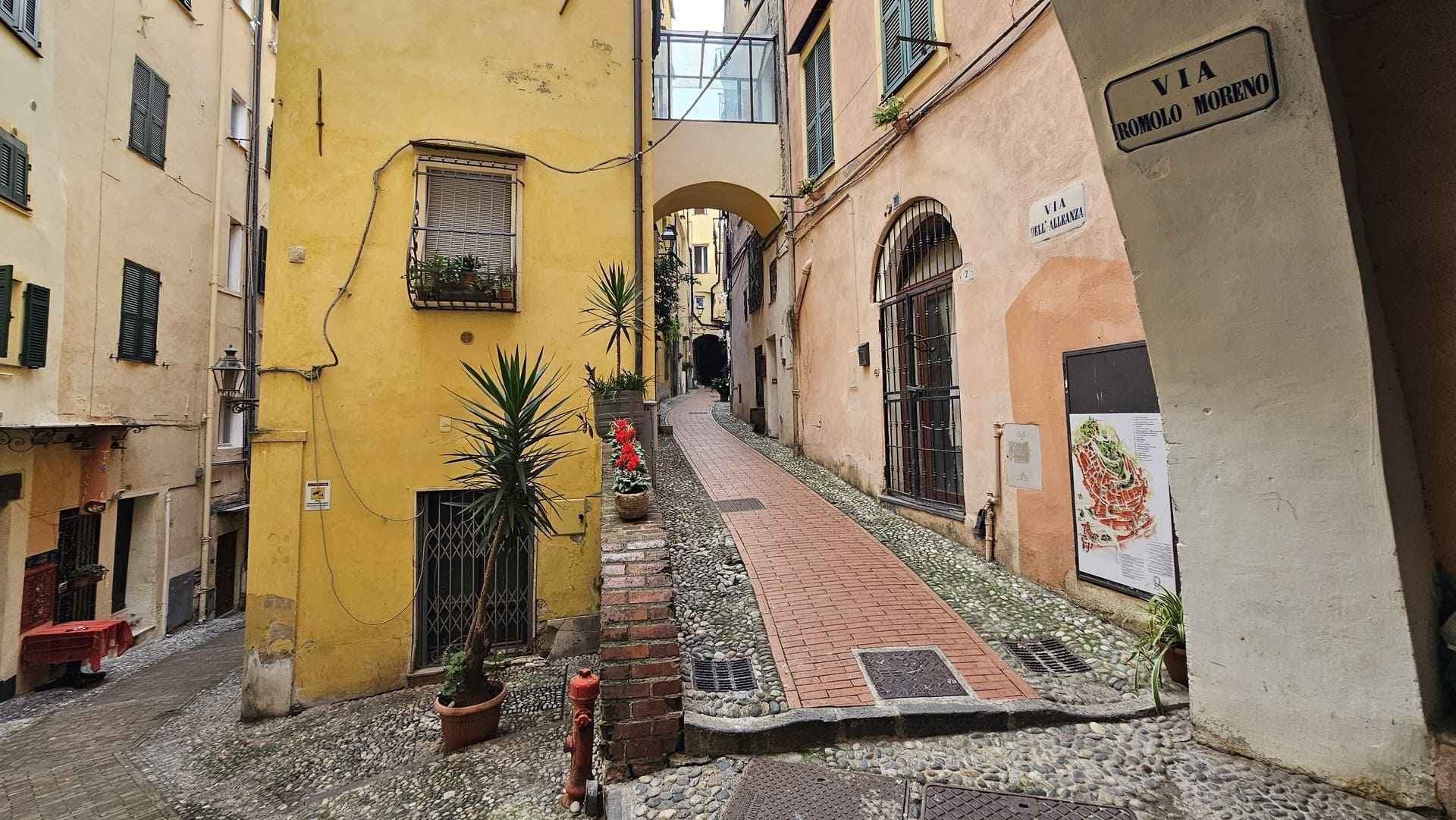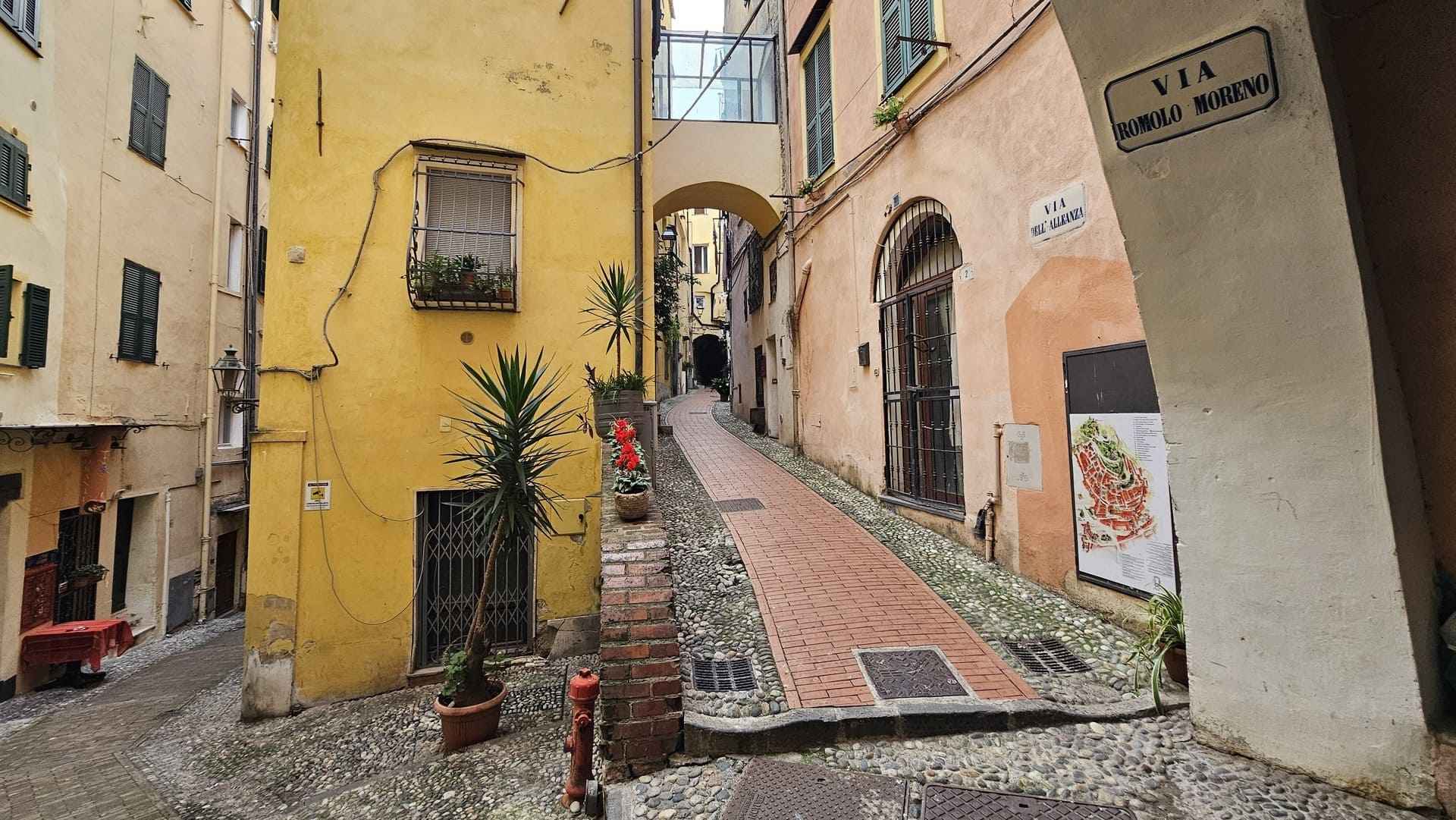
Discovering the Ligurian Riviera
Visit the Lizard Castle: discover the heritage of Apricale
May 06, 2024
The Lizard Castle, located in Apricale, in the province of Imperia, is one of the most important historical monuments in western Liguria. Founded in the 10th century, this castle has witnessed the historical and cultural events of the area, evolving from a stronghold to a noble residence to a municipal cultural center. Today, the castle stands out not only for its architecture but also as a venue for cultural events that attract visitors from all over northern Italy.
Where to sleep in western Liguria? Discover our agritourism in Diano Marina!
History
The Lizard Castle was supposedly erected in the 10th century by the Counts of Ventimiglia. The history of the castle tells of the tumultuous power struggles of the Ligurian valleys, which mainly involved the Doria and Grimaldi families of Monaco.
In the 16th century, the castle and village suffered severe damage as a result of Agostino Grimaldi's revenge against Bartolomeo Doria, who was accused of murdering Luciano Grimaldi. Despite the destruction, Andrea Doria managed to restore peace between the families with a strategic marriage that also marked the expansion of Savoy influence in the territory.
Over time, the castle was rebuilt with reduced functions and changed ownership several times until it became a private residence and then a municipal cultural center.

The Museum of the History of Apricale
Set up inside the Lizard Castle, the Apricale History Museum offers visitors a journey through time. This exhibition space brings together a wide range of historical memories and documents, archaeological materials, and memorabilia that illustrate the rich chronology and peculiarities of Apricale. Through the exhibits, the museum narrates not only the salient events but also the everyday curiosities that shaped the community of this picturesque Ligurian village.
A visit to the Museum and the Lizard Castle
The Lizard Castle, which we had the opportunity to visit on the occasion of the special opening for the 500th anniversary of the village's destruction at the hands of the Grimaldi family of Monaco, opens onto a magnificent outdoor garden, which offers a direct view of Apricale's main square.
A well-known home of the Apricale History Museum, its entrance features a detailed model of the village and an exhibit dedicated to the book "Apricale Together" by Lena Mohler, published in 2017. This work is structured in three chapters: the first recounts the author's personal experience in the village, the second offers a photographic collection of the inhabitants and landscapes, and the third presents portraits and stories of some of Apricale's international pioneers.
Lena Möhler, a Swedish author and photographer, settled in Apricale in 1986 after being encouraged by one of her Italian teachers who was originally from the village but lived in Germany to make a trip to Italy, making the western Ligurian region a fundamental part of her life. Today, Lena divides her time between Bremen and Apricale, continuing to explore and document the village's rich culture.
Apricale view from Lizard Castle
The Conference Hall and Theater of the Cough
After climbing the first stairs, one enters the castle's conference hall, a spacious and modernly equipped room. The walls are adorned with various theatrical figures, evidence of the intense collaboration that links Apricale to the Teatro della Tosse since 1990.
Every August, the theater enlivens the village for about ten days with performances involving the main square and the alleys of the center.
There is also a dedication book inside the hall, which includes a message left by Albert II of Monaco as a tribute to Apricale.

The set of the film "Wide Sea"
Beyond the conference hall, one encounters several rooms embellished with memorabilia and paintings illustrating the history of Apricale. Prominent among them is a poster pointing out how, in 1997, these same rooms were the film set of the movie "Mare Largo", inspired by the novel "Attesa sul mare," and starring Claudio Amendola and Isabella Ferrari.
The plot tells the story of a captain who, after returning to his village in Liguria, finds himself facing the ex-wife of his brother, also a sailor and deceased after discovering their affair. To escape the memories and guilt, the captain takes to the sea again to transport a cargo to Yugoslavia, only to find that the voyage will prove far more dangerous than expected.
The room dedicated to Cristina Anna Bellomo, "Countess of the Tower"
Past the first two rooms, we come to the room dedicated to an almost legendary character, namely Cristina Anna Bellomo, the "Countess of the Tower" (1861-1904).
Emma Bellomo, once a simple laundress, became a wealthy and influential countess through a marriage to Count Charles della Torre. After the count's death, Emma inherited his title and fortune, despite the opposition of his son. Later, she became guardian to her niece, Maria Pizzio, who contributed to her education and introduced her to aristocratic circles. Both women, who became spies for the tsar, were involved in secret missions during the Russo-Japanese conflict, but their espionage activities ended tragically with Maria's death and, later, Emma's violent death at the hands of her husband.

The room dedicated to Apricale's history and statutes
The next room offers a dive into the legal history of the village. Indeed, it presents a collection of statutes dating back to 1267, which list some of the oldest civil and criminal laws in Liguria.
These documents detail municipal structure, land management, crafts, criminal punishments, and the regulation of agriculture and animal husbandry. Interestingly, they also include strict regulations for serious crimes such as murder and adultery, reflecting a closed and autarkic society.
These manuscripts, preserved and restored, are a valuable window into Apricale's legal and social culture in centuries past.

The history of olive growing and innovations
The last rooms of Apricale Castle are devoted to the rich history of oil processing, once the village's main source of income. There are old tools used in the "blood" mills, operated by the power of donkeys or men, and memorabilia from the local band, including musical instruments. A collection of historic bicycles is also on display.
An information panel recounts how the introduction of olive growing by Benedictine monks transformed the landscape and economy of Apricale, culminating in the construction of olive presses along the stream in the 16th century, accessible to peasants only after the payment of onerous taxes. With the advent of a driveway and the modernization of the olive mills in the 20th century, olive growing experienced a golden age, now waning, with production reduced to a modest family level.
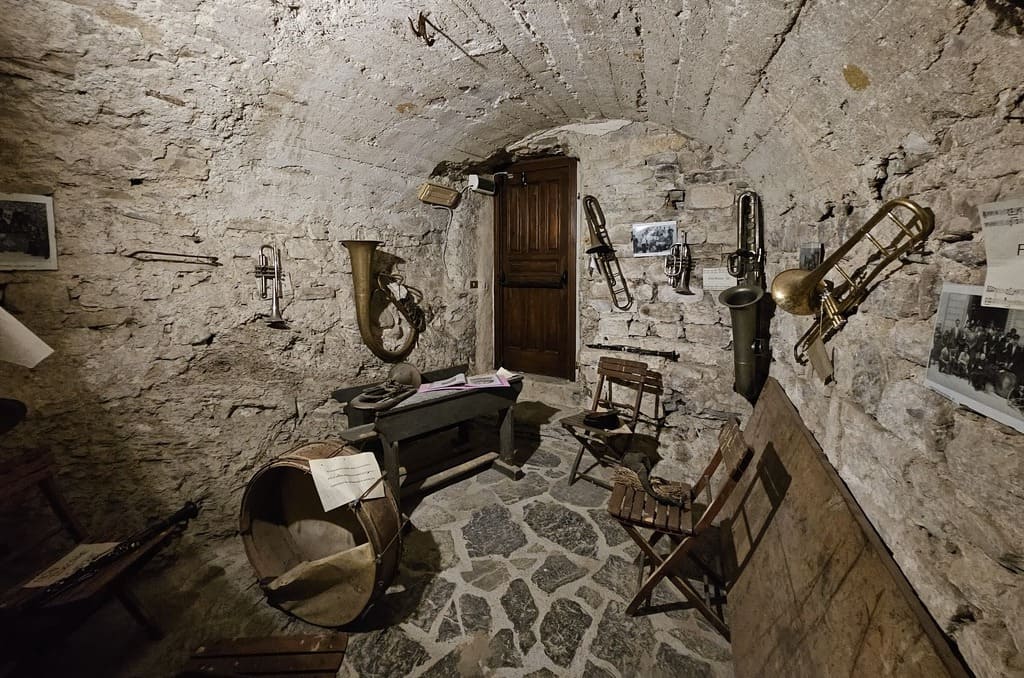
The Dungeons
The last rooms of the castle lead into the atmospheric dungeons, where the ceilings gradually rise. These spacious cellars, as suggested by the information signs, were probably used for storing oil, although their exact historical function remains a matter of speculation.

How and when to visit the castle
The Lizard Castle can be visited for a fee by following the hours published on the website of the Ministry of Culture. However, some online reviews report occasional closures despite the posted hours. We therefore recommend checking the museum's opening hours in advance before your visit and keeping abreast of any special openings to ensure that you can gain access without inconvenience.
Inside the Lizard Castle
Listen to all podcasts published on our official channels:
